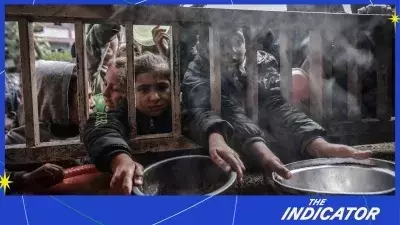
The ongoing humanitarian crisis in Gaza continues to deepen, marked by severe restrictions on vital aid. Organizations like the International Network for Aid, Relief and Assistance (INARA), led by Arwa Damon, face a constant uphill battle, with essential items frequently denied entry. This report delves into the intricate and often frustrating process of aid delivery, examining the economic realities of humanitarian work and the systemic impediments that exacerbate the suffering of civilians.
Navigating the Labyrinth of Aid Delivery to Gaza
On a significant date, August 12, 2025, a critical discussion unfolded regarding the dire humanitarian situation in the Gaza Strip. Arwa Damon, the esteemed founder of the International Network for Aid, Relief and Assistance (INARA), brought to light the formidable challenges her organization encounters in their earnest efforts to deliver aid to the besieged region. During this insightful exchange, Damon revealed that even basic necessities and life-saving medical supplies, such as insulin needles and warm sleeping bags, alongside less conventional but still vital items like Nutella for children's nutrition and morale, have been inexplicably turned away. This rejection of aid underscores the profound complexities and stringent controls that govern the entry of goods into Gaza, painting a grim picture of a humanitarian crisis that shows no immediate signs of abating. The conversation also delved into the economic intricacies involved in managing a non-profit humanitarian operation within such a volatile geopolitical landscape, further exposing the multifaceted obstacles that hinder the flow of much-needed assistance to the vulnerable populations.
The persistent obstruction of humanitarian aid into Gaza serves as a stark reminder of the urgent need for a more streamlined and compassionate approach to international relief efforts. From a humanitarian perspective, the denial of basic provisions, particularly medical supplies, is not merely an economic or logistical issue; it is a profound ethical failing. This situation compels us to reflect on the global responsibility to protect vulnerable populations during crises and to demand greater accountability from all parties involved. The current system not only prolongs suffering but also erodes trust in international humanitarian principles. It is imperative that international bodies and influential nations exert greater pressure to ensure unimpeded access for aid, prioritizing human lives above all else.
